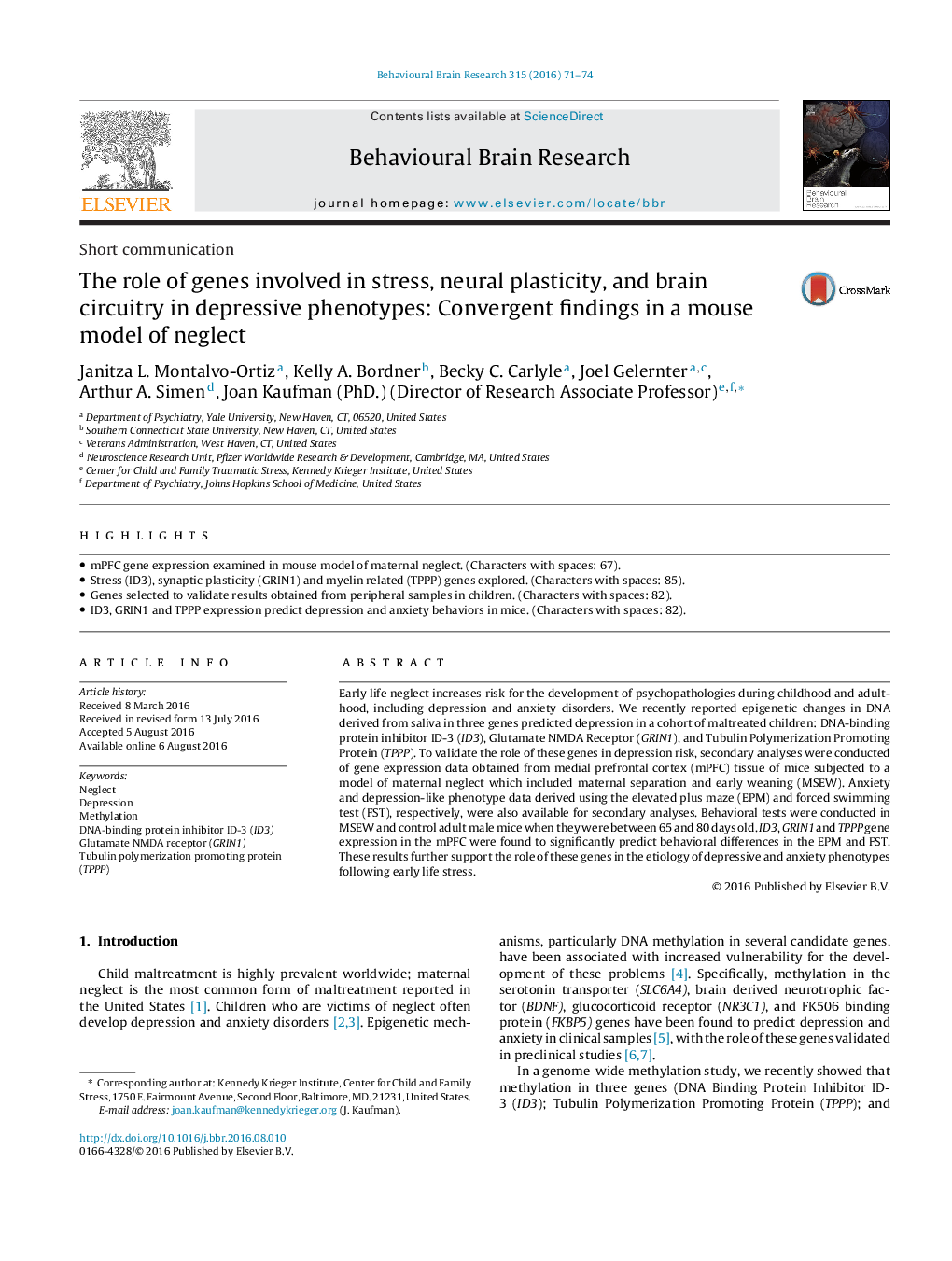| کد مقاله | کد نشریه | سال انتشار | مقاله انگلیسی | نسخه تمام متن |
|---|---|---|---|---|
| 4312046 | 1612918 | 2016 | 4 صفحه PDF | دانلود رایگان |
• mPFC gene expression examined in mouse model of maternal neglect. (Characters with spaces: 67).
• Stress (ID3), synaptic plasticity (GRIN1) and myelin related (TPPP) genes explored. (Characters with spaces: 85).
• Genes selected to validate results obtained from peripheral samples in children. (Characters with spaces: 82).
• ID3, GRIN1 and TPPP expression predict depression and anxiety behaviors in mice. (Characters with spaces: 82).
Early life neglect increases risk for the development of psychopathologies during childhood and adulthood, including depression and anxiety disorders. We recently reported epigenetic changes in DNA derived from saliva in three genes predicted depression in a cohort of maltreated children: DNA-binding protein inhibitor ID-3 (ID3), Glutamate NMDA Receptor (GRIN1), and Tubulin Polymerization Promoting Protein (TPPP). To validate the role of these genes in depression risk, secondary analyses were conducted of gene expression data obtained from medial prefrontal cortex (mPFC) tissue of mice subjected to a model of maternal neglect which included maternal separation and early weaning (MSEW). Anxiety and depression-like phenotype data derived using the elevated plus maze (EPM) and forced swimming test (FST), respectively, were also available for secondary analyses. Behavioral tests were conducted in MSEW and control adult male mice when they were between 65 and 80 days old. ID3, GRIN1 and TPPP gene expression in the mPFC were found to significantly predict behavioral differences in the EPM and FST. These results further support the role of these genes in the etiology of depressive and anxiety phenotypes following early life stress.
Journal: Behavioural Brain Research SreeTestContent1 SreeTestContent1 - Volume 315, 15 December 2016, Pages 71–74
